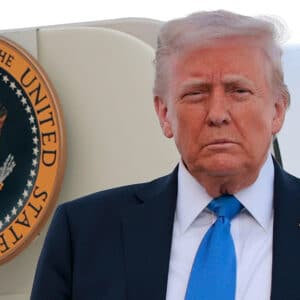In a rare intra‑branch standoff, three senior Trump administration officials—Attorney General Pam Bondi, Secretary of State Marco Rubio, and Homeland Security Secretary Kristi Noem—have collectively invoked the state‑secrets privilege to withhold critical information from a federal judge overseeing the administration’s emergency deportation flights. The flights, undertaken under the President’s recent invocation of the Alien Enemies Act of 1798, aimed to remove hundreds of Venezuelan nationals alleged to be members of the Tren de Aragua criminal organization. U.S. District Judge James Boasberg responded by temporarily blocking any further deportations and demanding detailed flight manifests, routing logs, and passenger lists. In response, the three officials filed court papers late Monday asserting that disclosure of such data would jeopardize national security and strain sensitive diplomatic relationships.
This article provides a comprehensive, professional analysis of the dispute: the legal foundation of the state‑secrets privilege; the procedural history of Judge Boasberg’s orders; the administration’s rationale for rapid removals under the Alien Enemies Act; the substance of the privilege claims; the broader separation‑of‑powers implications; and the potential paths ahead—both in the courts and on Capitol Hill.
1. The Emergency Deportation Directive and Initial Judicial Intervention
1.1 Presidential Invocation of the Alien Enemies Act
On March 1, 2025, President Donald J. Trump issued an executive directive authorizing the immediate removal of Venezuelan nationals alleged to belong to Tren de Aragua, a violent transnational criminal organization designated a “foreign terrorist organization” by the Department of Homeland Security (DHS). Citing the Alien Enemies Act—an 18th‑century statute granting the President broad authority to arrest and deport non‑citizens from hostile nations—the administration announced plans to deport approximately 300 individuals within weeks. Administration officials argued that traditional immigration removal proceedings were inadequate in speed and scope to counter the threat posed by the group’s illicit networks.
1.2 Judicial Pushback: Judge Boasberg’s Temporary Restraining Order
Within days, several detainees affected by the directive sought emergency relief in the U.S. District Court for the District of Columbia. On March 15, Chief Judge James Boasberg granted a temporary restraining order (TRO), halting all further deportation flights under the Alien Enemies Act until the court could address due‑process concerns and determine whether the administration had exceeded its statutory authority. Notably, Judge Boasberg’s TRO was initially issued orally during a telephonic hearing; two deportation flights nonetheless departed before the written order was filed, prompting the judge to demand immediate clarification of what had transpired.





